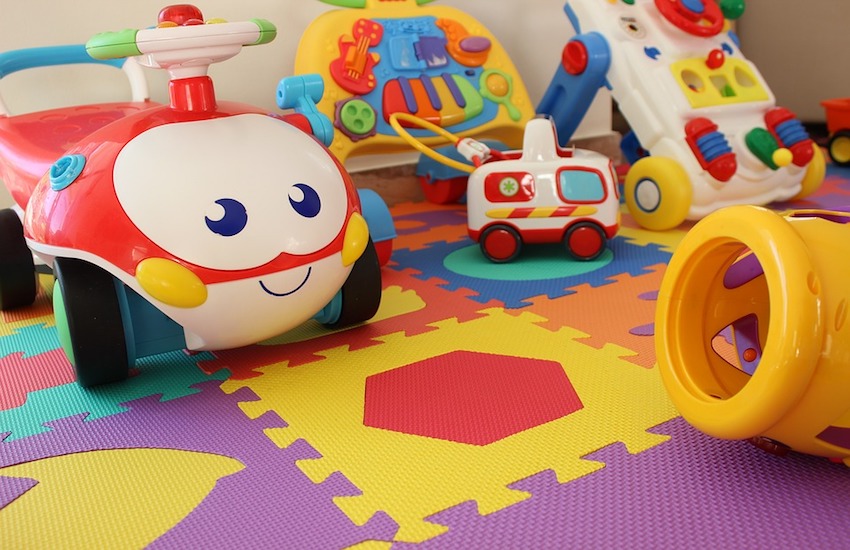A growing number of parents are raising their kids as ‘theybies,’ or gender-neutral until the child can decide how they want to identify.
Gender-neutral parenting
This gender-neutral parenting includes letting boys and girls wear the same clothes and play with the same toys. However, some parents aren’t even revealing the sex of their children to anyone.
This unique style of parenting first gained attention back in 2011, when a Toronto couple decided to raise their child, Storm, without revealing Storm’s sex to anyone. As of 2016, Storm goes by she/her pronouns.
As great as this style of parenting seems, roadblocks come as the child is introduced to the gendered world. Gender-nonconforming kids are more likely to be bullied. Additionally, many states have introduced bathroom bills within the last year, requiring a person to use the public restroom that matches the sex they were assigned at birth.
‘Once your child meets the outer world, which may be daycare, or preschool, or grandparents — it’s pretty much impossible to maintain a gender-free state,’ Lise Eliot, professor of neuroscience at the Chicago Medical School and author of Pink Brain, Blue Brain, told NBC News.
‘And depending on how conventional your community is, you could be setting your child up for bullying or exclusion.’
The Sharpe Family
One family confident in their decision to raise their children this way is the Sharpe family from Cambridge, Massachusetts.
Nate and Julia Sharpe are raising their three-year-old twins—Zyler and Kadyn—as ‘theybies.’
‘A theyby is, I think, different things to different people,’ Nate Sharpe explained to NBC News. ‘For us, it means raising our kids with gender-neutral pronouns — so, “they,” “them,” “their,” rather than assigning “he,” “she,” “him,” “her” from birth based on their anatomy.’
When Julia discovered she was pregnant, she felt conflicted about finding out the sex of the babies. So Nate and Julia began doing research about how gendered stereotypes can affect a child’s development.
‘We read about how from when they’re 20-week fetuses, they’re already starting to be gendered, and people are calling the little girls “princesses,” and buying certain things for different children,’ Julia told NBC. ‘We wanted to prevent that, so that’s how it started. And then about a couple weeks before they were born, Nate just said, “What if we didn’t tell people ever?”’
When the twins were born, the Sharpes asked the hospital staff to not announce their sex.
‘It just wasn’t something that was interesting,’ Julia said of the decision to not announce their sex. ‘It was all about meeting the children and interacting with them, and just not something that we focused on at all.’
The Sharpes use they/them pronouns for the twins. However, one day Zyler asked Julia what ‘he’ and ‘she’ mean.
‘Since we’ve tried to avoid really getting into gender until they’re old enough to understand it, I answered that “he” and “she” are pronouns and you use them to make sentences simpler, so instead of saying someone’s name over and over in the sentence, you’ll say “he” or “she” or “they” instead,’ Julia said. ‘And Zyler got distracted after that and moved on.’
Benefits of gender-neutral parenting
Dr. John Steever, assistant professor of pediatrics at the Mount Sinai Adolescent Health Center in New York, believes this gender-neutral parenting will allow children to know they’re loved and accepted regardless of their gender.
‘When a child is told their entire life, “You are a boy, you are going to grow up to be a man, you are going to like women, you are going to be a father…,” when they start to feel, at a young age, or maybe in their adolescence that isn’t right, that doesn’t fit me,” Steever told NBC. ‘That creates that gender dysphoria.’
However, only 0.6 of American adults identify as transgender, so there is a low likelihood any ‘theybie’ will grow up to be trans. Still, according to Steever, this parenting style could prevent the distress of gender dysphoria.
The Levitt Family
Another family raising ‘theybies’ is 40-year-old Nathan Levitt and his husband, based in Brooklyn. The couple is not revealing the sex of their 18-month-old, Zo.
Yet, according to Levitt, not everyone is understanding of their choice. He recalls an incident when the family was boarding an airplane. Zo was wearing a pink sweater, and a fellow passenger said, ‘Oh, you’re so lucky you have a girl. Girls are so pretty and… fragile, and she’s going to grow up and get so many boyfriends.’
The couple didn’t bother to correct the woman. But later, after Zo’s pink sweater was taken off and Zo was now wearing blue, the same woman became upset. ‘You didn’t tell me you had a boy,’ she said.
‘We didn’t actually tell you any gender that our child is — our child is going to tell us how they identify,’ Levitt explained to the woman. In response, the woman accused Levitt and his husband of setting their child up for a ‘difficult life.’
Moving forward
Still, the Sharpe family, is hopeful Zyler and Kadyn will attend a public preschool accepting of the family’s parenting style. Nate and Julia believe their children will know their gender preference by the time they reach elementary school.
‘I’d rather have a kid that experiences adversity and deals with it and comes out stronger,’ Nate Sharpe said. ‘Than a kid who is a bully.’







